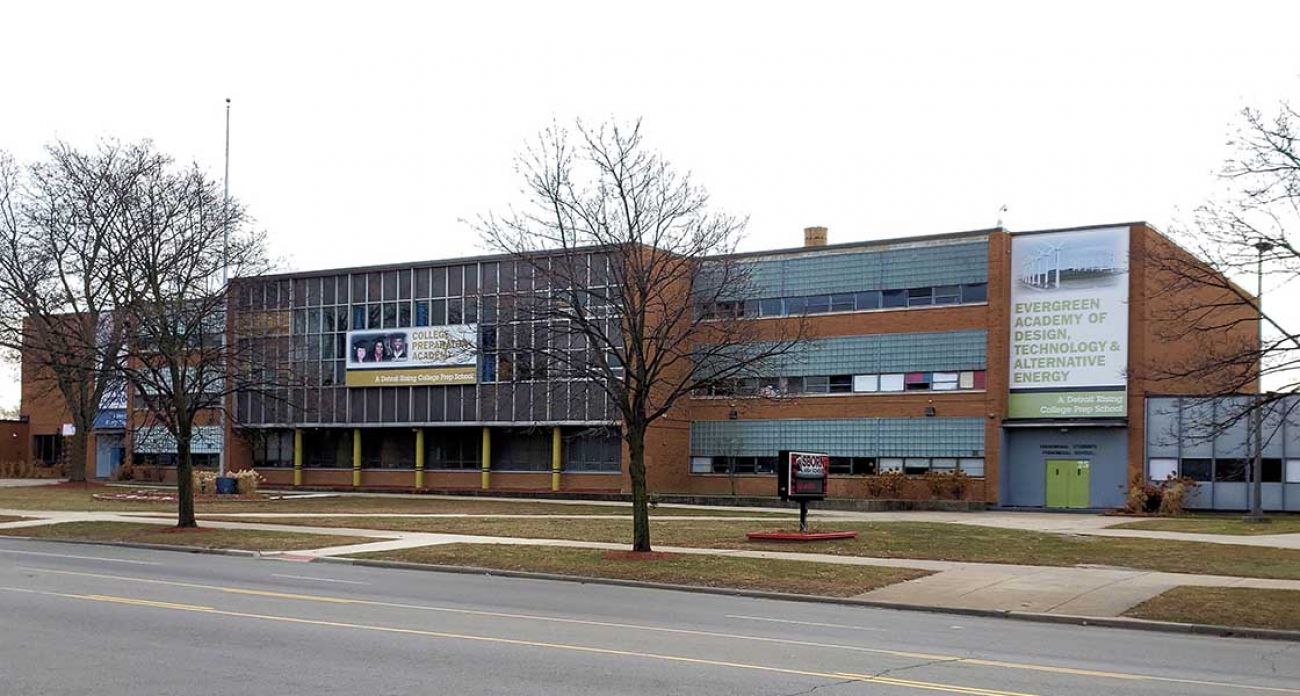Why do Detroit kids miss so much school? Hint: Don’t just blame the schools

Detroit students have among the highest rates of chronic absenteeism in the nation, and a new report suggests schools alone can’t fix it.
Instead, the major causes for Detroit students missing class at three times the state average are predominantly outside of school, such as asthma, poverty, segregation and plummeting city population, according to a new report by researchers at Wayne State University’s College of Education.
“While school-based efforts to reduce absenteeism are critical, they are likely insufficient to address the enormous challenges students face in getting to school in Detroit,” report co-author Sarah Lenhoff, assistant professor of educational leadership and policy studies at Wayne State, told Bridge Magazine.
While focusing on the challenge of absenteeism, the report provides further proof of a broader, sobering lesson for education reformers: School-focused efforts such as teacher accountability and student testing are limited by factors that educators may have no control over.
In the 2018-19 school year, 62 percent of Detroit Public Schools Community District students were considered “chronically absent,” meaning they were absent at least 18 days during the school year. Eighteen days represents 10 percent of the school year. Across the state, 20 percent of students were chronically absent.
The 62 percent figure represents an improvement over the previous year, when 70 percent of Detroit students were chronically absent. It’s an increase, however, over 2016-17 (56 percent) and 2015-16 (55 percent).
School attendance impacts academic achievement. Detroit has the state’s highest rate of chronic absenteeism, and also is among the state’s lowest-performing school districts on the state’s standardized test, the M-STEP.
Detroit Superintendent Nikolai Vitti lists decreasing absenteeism as a key to improving Detroit schools.
Last year, Detroit schools spent $9 million to hire attendance agents for most of its 106 schools to check up on students at their homes when they’ve been missing from class. The district has also added vans to pick up students who’ve been chronically absent.
The new report, though, titled “Detroit’s uniquely challenging context for student attendance,” suggests school-based efforts may have limited impact.
Researchers examined a number of environmental and structural factors in 33 cities across the nation with populations over 500,000. The study found:
- The percent of adults with asthma had the highest correlation to school absences, followed by violent crime rate, residential vacancy rate, unemployment rate and poverty rate
- Other factors with a statistically significant correlation to school attendance: segregation, population change since 1970 and cold average temperature.
- Detroit ranked worst among the 33 cities on six of the factors (asthma, violent crime, residential vacancy rate, unemployment rate, poverty rate and population change), second in another (segregation) and third in the other (temperature).
“Basically, Detroit has incredibly challenging barriers [to school attendance],” said study co-author Jeremy Singer, doctoral research assistant at Wayne State. “No other city even comes close to Detroit.”
Detroit has one of the nation’s highest rates of asthma, which alone causes more than 1,700 days of missed school, according to one study.
The research suggests that efforts to improve attendance in Detroit schools can’t be based solely in the schools themselves, Singer said, but must include community-wide efforts. Examples could include more reliable, affordable public transportation in a city where four in 10 adults don’t own a car, and considering student walking routes to schools when planning community redevelopment.
“A lot of our efforts so far have been school-based efforts,” Lenhoff said. “Those efforts only go so far.”
Lenhoff said she hopes the study will help state leaders understand that school achievement is a reflection of community achievement.
Community leaders are beginning to work together on the issue, forming a group called Every School Day Counts Detroit with the goal of decreasing chronic absenteeism to 15 percent by 2027.
“It’s important to document this so we can begin to do something about it,” Singer said. “This has to be approached in a coordinated way.”
Michigan Education Watch
Michigan Education Watch is made possible by generous financial support from:
Subscribe to Michigan Education Watch
See what new members are saying about why they donated to Bridge Michigan:
- “In order for this information to be accurate and unbiased it must be underwritten by its readers, not by special interests.” - Larry S.
- “Not many other media sources report on the topics Bridge does.” - Susan B.
- “Your journalism is outstanding and rare these days.” - Mark S.
If you want to ensure the future of nonpartisan, nonprofit Michigan journalism, please become a member today. You, too, will be asked why you donated and maybe we'll feature your quote next time!






